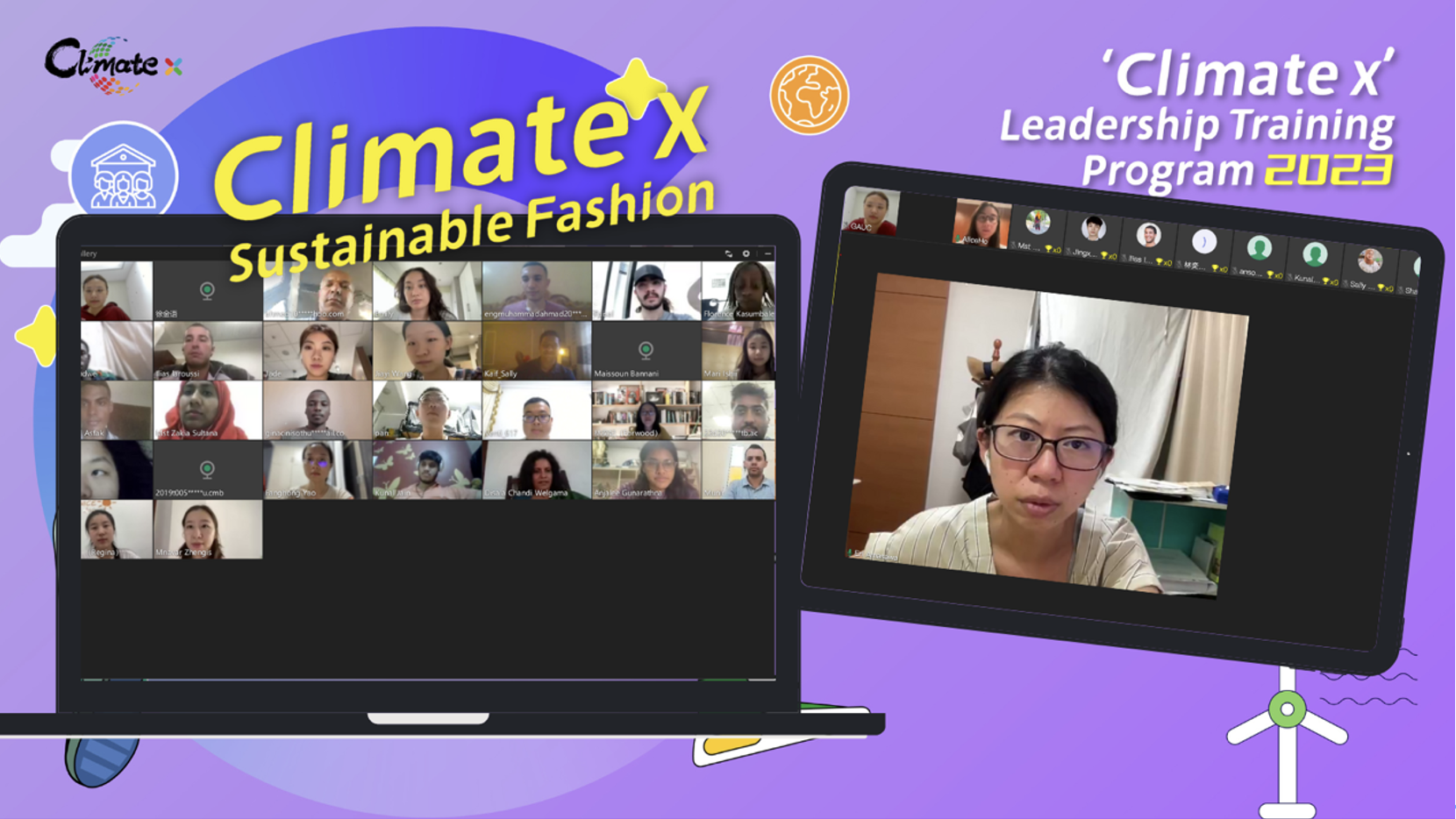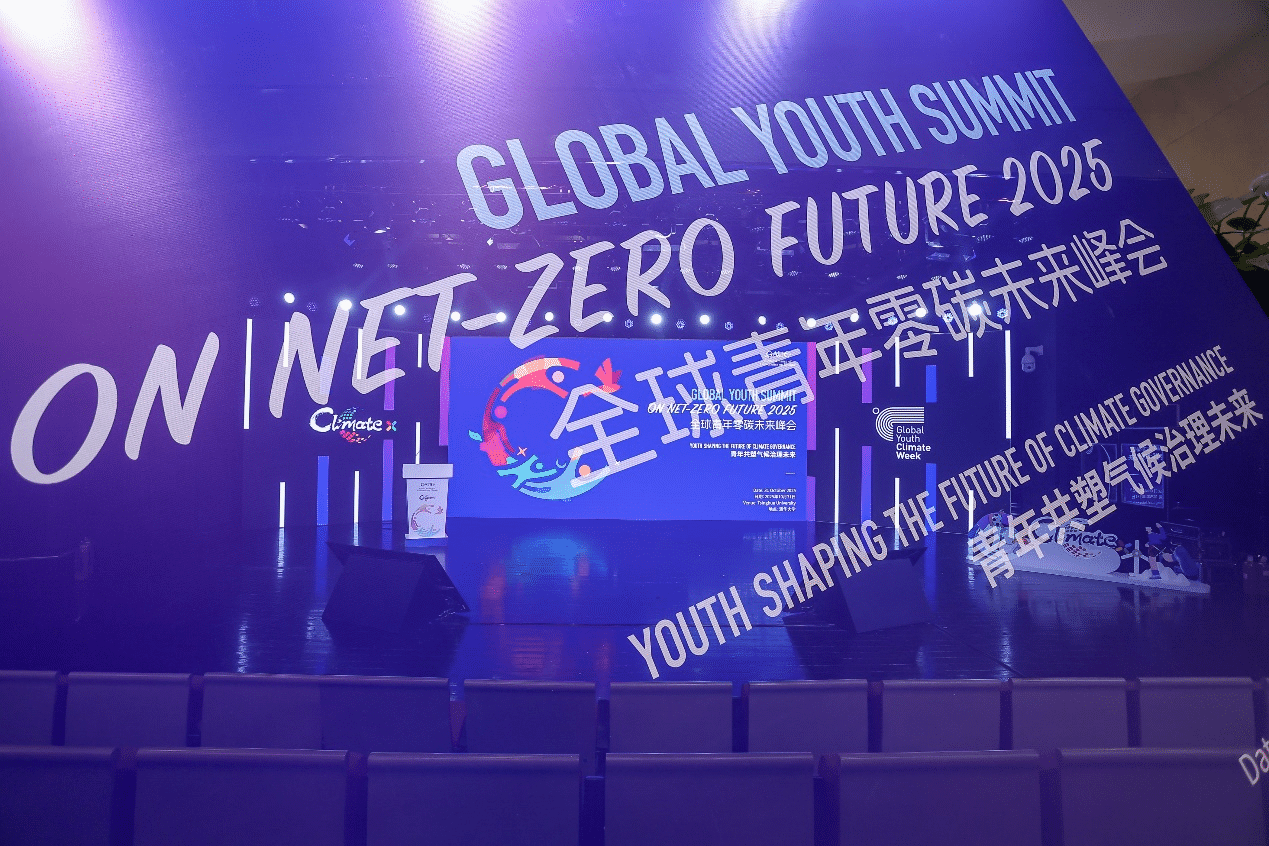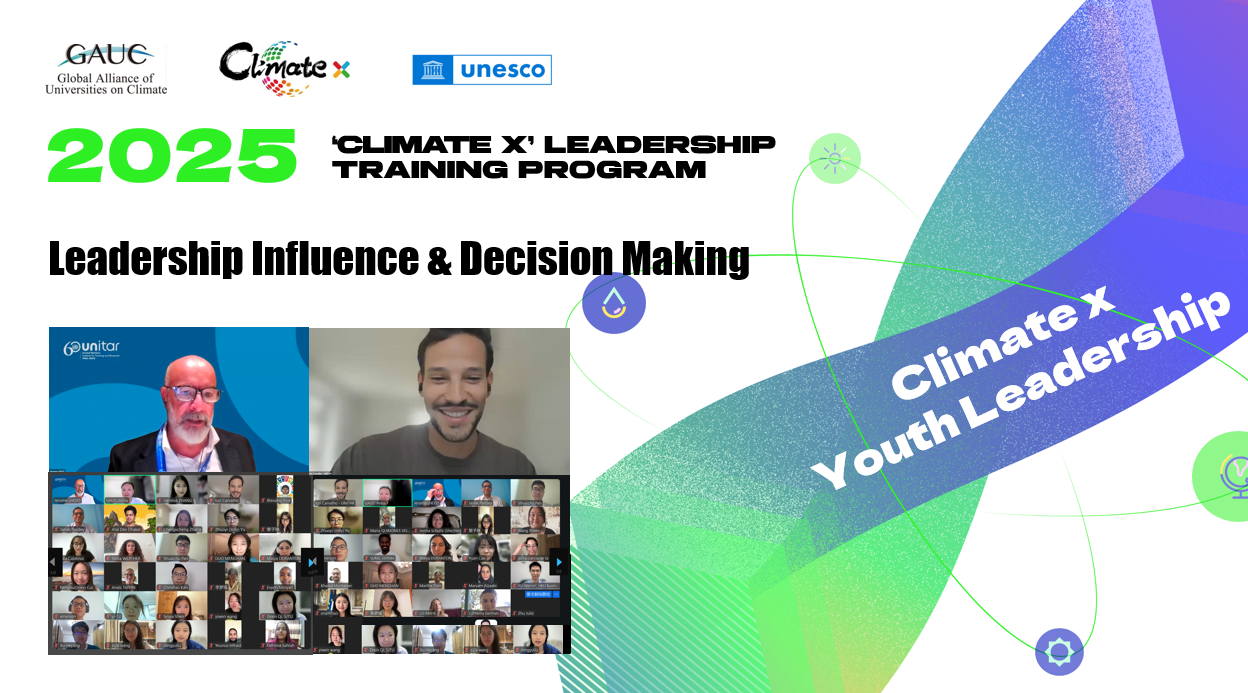On July 27th, the ‘Climate x’ Leadership Training Program 2023 (‘Climate x’ 2023), co-hosted by Global Alliance of Universities on Climate (GAUC) and the Asian Universities Alliance (AUA), successfully held the final live workshop focusing on the synergy between climate change and sustainable fashion.

Prof. Amasawa Eri, a project Associate Professor at Research Center for Advanced and Technology of the University of Tokyo, provided a recorded session on Understanding Sustainable Fashion from Life Cycle Thinking. Prof. Amasawa Eri pointed out that clothing had become a symbol of today's mass-production, mass-consumption, and mass-disposal society. Various materials and business models have been proposed to tackle the environmental problems rooted in the fashion industry, but it remains unclear whether they can actually mitigate the adverse environmental impact. Her lecture aimed to understand sustainable fashion from a life cycle thinking perspective, where she quantitatively examined the environmental impact of garments from raw material extraction to the end of life. By understanding the parameters of the environmental impact of garments, we were able to critically evaluate the measures and actions for sustainable fashion.
Two instructors from Kering groups provided another recorded session on Sustainability in the Fashion Sector. Pauline Pigott, the sustainable project manager and director of sustainable development and institutional affairs at Kering, a member of the executive committee, introduced the environment impacts induced by the fashion factor, which has caused a huge challenge for fashion development. Geraldina Vallejo, the Sustainability Programme Director at Kering, who holds over thirteen years of experience in sustainable innovation, proposed some sustainability strategies, including a roadmap for 2025 and a long-lasting commitment towards sustainability and innovation. Kering group is regenerating nature according to three levels of action in their operational work, regional sourcing, and global efforts, to invest in natural climate solutions as close as possible to operations to avoid downstream compensation.
The live workshop session of the course was hosted by Alice Ho, the Chief Youth Officer of GAUC. Students and Prof. Amasawa Eri discussed issues related to sustainable fashion and how it can influence the global climate change. They also talked about the ways governments and policymakers can support and incentivize the adoption of sustainable fashion practices on a broader scale, and how consumers can make more sustainable fashion choices in everyday life.
The Climate x Leadership Training Program 2023 is open to college students globally. By emphasizing the synergy between climate change and other UN Sustainable Development Goals (SDGs) and adopting a ‘Train the Trainer’ approach through a combination of interdisciplinary lectures, diversified workshops, and engagement practices, the training program aims to empower the next generation to take innovative actions and unlock their potential to contribute to a net-zero future.
As the interdisciplinary online workshops contributed by experts from member universities of GAUC and AUA came to a successful conclusion, the training program has moved on to the second phase. Starting next week, the program’s students, from over 290 universities across more than 70 countries, will begin applying what they learned during the training to create actual impact by hosting climate events in their communities. Meanwhile, GAUC and AUA will continue providing empowerment lectures and field trips.
Reporter: YAO Fanghong
Editor: Cary Lee
- end -

Marching towards COP30 – GAUC Action Plan for Belem

Youth Shaping the Future of Climate Governance: The 5th Global Youth Summit on Net-Zero Future Successfully Held

Mr. Jerome L’host Led Sessions on Youth Leadership in 2025 Climate x Leadership Training Program
